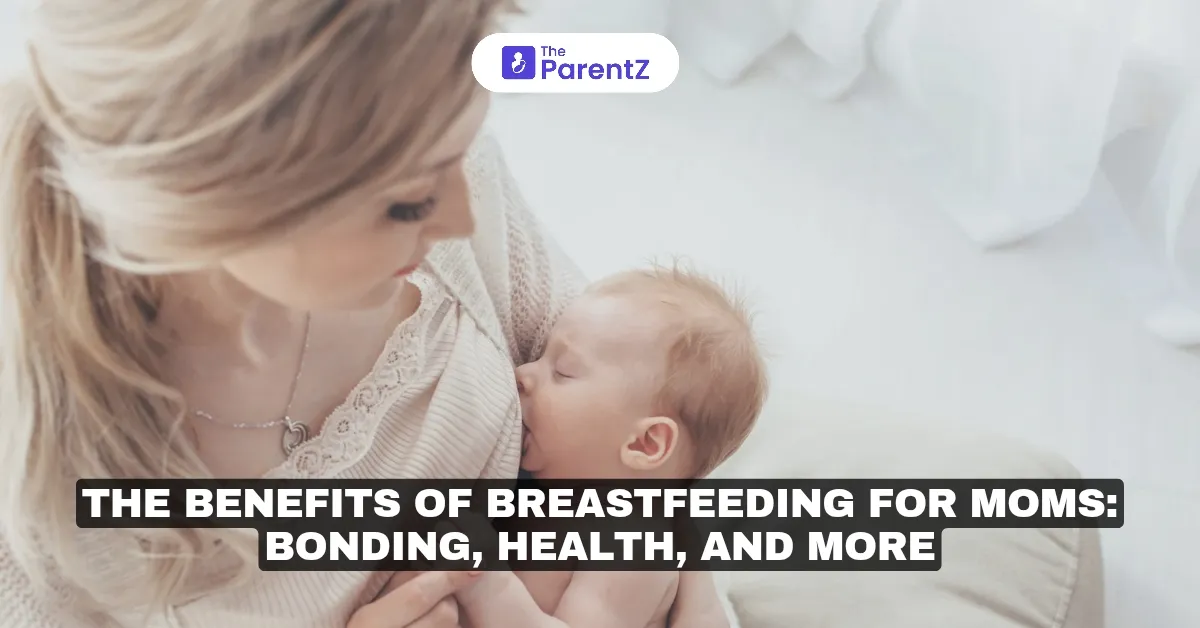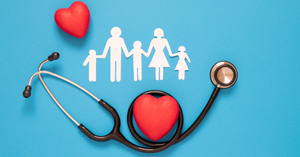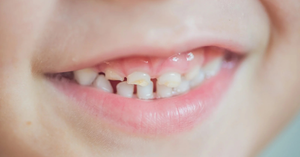As a new mom, you've probably heard countless times about how beneficial breastfeeding is for your baby. But did you know that breastfeeding offers an impressive array of health benefits for you, too? Let's explore these remarkable advantages that make breastfeeding a true gift that keeps on giving – not just for your baby but for you as well.
Bonding and Emotional Well-being
Breastfeeding goes beyond simply providing nutrition for your baby; it serves as a significant means of fostering closeness and enhancing the relationship between you and your child. The physical proximity, skin-to-skin contact, and eye contact that occur during breastfeeding all play a vital role in establishing a feeling of safety and connection.
- Hormone Boost: When you breastfeed, your body releases hormones like prolactin and oxytocin. Oxytocin, commonly referred to as the "love hormone," fosters feelings of calmness, care, and relaxation, allowing you to concentrate on your baby. This hormonal surge fosters a strong sense of love and attachment, enhancing the emotional connection between you and your baby.
- Increased Calmness: Breastfeeding can also support your baby's emotional wellness. Breastfed babies tend to cry less and experience fewer instances of childhood illness, contributing to a more peaceful environment for both mother and child.
- Learning Infant Cues: Breastfeeding helps mothers become more attuned to their infant's cues, fostering a deeper understanding and responsiveness to their baby's needs. This heightened awareness strengthens the bond and promotes a more harmonious relationship.
Physical Health Benefits
Breastfeeding offers a wide range of physical health benefits for mothers, including reduced risks of certain diseases and faster postpartum recovery.
- Reduced Risk of Cancer: Studies suggest that breastfeeding can decrease a mother's likelihood of developing breast and ovarian cancer. The risk of invasive breast cancer may be reduced by over 4% for every year a woman breastfeeds. Research indicates that mothers who forgo breastfeeding have a 32% higher chance of developing ovarian cancer.
- Protection Against Metabolic Diseases: Lactation plays a critical role in a mother's long-term metabolic health. Breastfeeding can help reduce maternal obesity and lower the risk of diabetes mellitus and hyperlipidemia. Mothers who breastfeed for as little as one month have a significantly lower risk of diabetes in later life compared to those who do not breastfeed at all.
- Cardiovascular Health: Breastfeeding is associated with a lower likelihood of developing cardiovascular disease, which is the leading cause of death among women in the United States. Research from the Women's Health Initiative indicates that mothers who breastfed for seven to twelve months after their first child had a 28% reduced risk of cardiovascular disease compared to those who did not breastfeed. Furthermore, women who breastfed for two years or longer experienced a 23% decrease in their risk of coronary heart disease.
- Lower Risk of Hypertension: In a cohort study, mothers who never breastfed were 29% more likely to develop hypertension, even after adjusting for lifestyle factors and family history.
- Postpartum Recovery: Breastfeeding accelerates the uterus's return to its pre-pregnancy size by releasing oxytocin, which triggers uterine contractions. It can also help reduce postpartum bleeding.
- Weight Loss: Breastfeeding burns extra calories, which can aid in losing pregnancy weight faster. Milk production requires approximately 500 kcal per day for an exclusively breast-fed infant, reducing maternal obesity in later life.
Practical Advantages
Beyond the health and emotional benefits, breastfeeding offers several practical advantages for mothers.
- Convenience: Breast milk is always available, requires no preparation, and can be provided anytime, anywhere. This eliminates the need to buy, measure, and mix formula, sterilize nipples, or warm bottles.
- Cost-Effective: Breastfeeding can lead to considerable savings compared to using formula. While formula can be quite expensive, breast milk is free.
- Time-Saving: Breastfeeding provides regular time to relax quietly with your newborn as you bond, making it a valuable opportunity for rest and connection.
Breastfeeding and Long-Term Health Costs
A study suggests that if 90% of mothers in the U.S. breastfed for a year after each birth, approximately 14,000 heart attacks could be prevented annually, and 54,000 women might avoid hypertension treatment. This reduction in health issues could save the U.S. billions each year, preventing over 4,000 premature maternal deaths and nearly 1,000 infant deaths.
Conclusion
Breastfeeding offers a wealth of benefits for mothers, ranging from enhanced bonding and emotional well-being to significant physical health advantages and practical conveniences. By understanding these benefits, mothers can make informed decisions about infant feeding and embrace the unique rewards that breastfeeding provides.
References:
Glossary
| Oxytocin | A hormone released during breastfeeding that promotes feelings of love, bonding, and relaxation. |
| Prolactin | A hormone responsible for promoting milk production in the breast tissue. |
| Hypertension | High blood pressure, a condition that can lead to heart disease and stroke. |
| Hyperlipidemia | High levels of lipids (fats) in the blood, increasing the risk of heart disease. |
| Lactation | The process by which milk is produced and released from the mammary glands. |
| Postpartum | The period after childbirth. |
| Uterus | The reproductive organ where a fetus grows and develops throughout pregnancy. |








Be the first one to comment on this story.